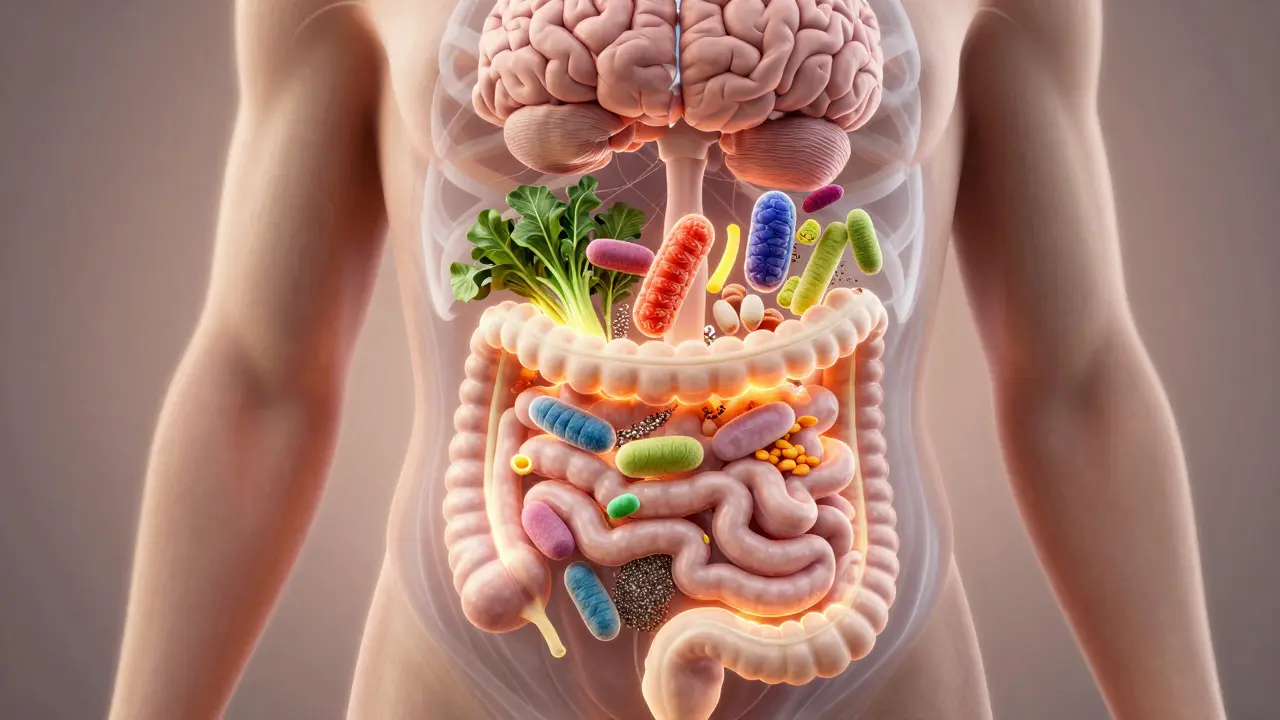Gut-Brain Connection: How Your Gut Shapes Mood and Digestion
Ever felt your stomach flip before a big meeting or noticed your digestion change when you’re stressed? That’s the gut-brain connection in action. The gut and brain send signals back and forth through nerves, hormones, and the immune system. Your gut microbiome — the trillions of bacteria living in your intestines — plays a big role in those messages. Small changes to food, sleep, movement, and stress can shift how you feel and how well your digestion works.
How the gut talks to the brain
There are three main pathways: the vagus nerve (a direct line between gut and brain), chemicals like serotonin and short-chain fatty acids made by gut microbes, and the immune system. For example, certain bacteria produce compounds that calm inflammation and help brain cells communicate. Antibiotics, poor diet, or chronic stress can reduce helpful microbes and increase gut inflammation, which may worsen mood, focus, or bowel habits.
Changes don’t happen overnight. Shifting your microbiome usually takes weeks. You might notice more stable digestion and better mood in 3–8 weeks after consistent changes, like adding fiber and fermented foods.
Practical steps to strengthen the link
1) Feed friendly bacteria. Aim for 25–35 g of fiber daily from oats, beans, berries, apples, and veggies. Eat a serving of fermented food most days — plain yogurt, kefir, kimchi, sauerkraut, or miso. If you use a probiotic supplement, look for products with Lactobacillus or Bifidobacterium strains and at least 1–10 billion CFU. Try it for 4–8 weeks and notice any changes.
2) Add prebiotics. Foods with inulin and resistant starch feed good bacteria: garlic, onions, leeks, asparagus, green bananas, and cooked-then-cooled potatoes. A small portion daily helps microbes thrive.
3) Move regularly. Moderate exercise — a 30-minute brisk walk most days — helps gut motility and supports diverse microbes. Even short sessions add up.
4) Sleep and stress matter. Aim for 7–9 hours of sleep. Use simple stress tools: 5 minutes of deep breathing, a short guided meditation, or paced breathing. Techniques like biofeedback and creative arts therapies can reduce stress and change gut signals — they work well alongside diet.
5) Cut back on processed sugar and ultra-processed foods. They can feed the wrong microbes and increase inflammation. Limit sugary drinks and highly processed snacks.
6) Know when to see a pro. See your doctor if you have severe abdominal pain, unexplained weight loss, blood in stool, persistent changes in bowel habits, or big mood shifts that affect daily life. A doctor can check for infections, inflammatory conditions, and refer you to a dietitian or mental health professional when needed.
Try one or two changes at a time and track results. Small, steady steps — more fiber, a daily fermented food, consistent sleep, and brief stress breaks — often give the biggest payoff for both your gut and your brain.
Rediscover the Power of Good Gut Health
- Arlo Sterling
- Feb, 17 2026
Good gut health affects everything from digestion to mood and immunity. Learn the real signs your gut is out of balance and how simple daily habits can restore it naturally.
Learn MoreGut Health: Unlocking the Key to Better Wellness in 2025
- Isobel Dunbar
- Aug, 19 2025
Gut health affects digestion, immunity, mood, and energy. Learn why your gut matters, how it impacts your health, signs it's out of balance, and easy steps for a happier gut.
Learn More
